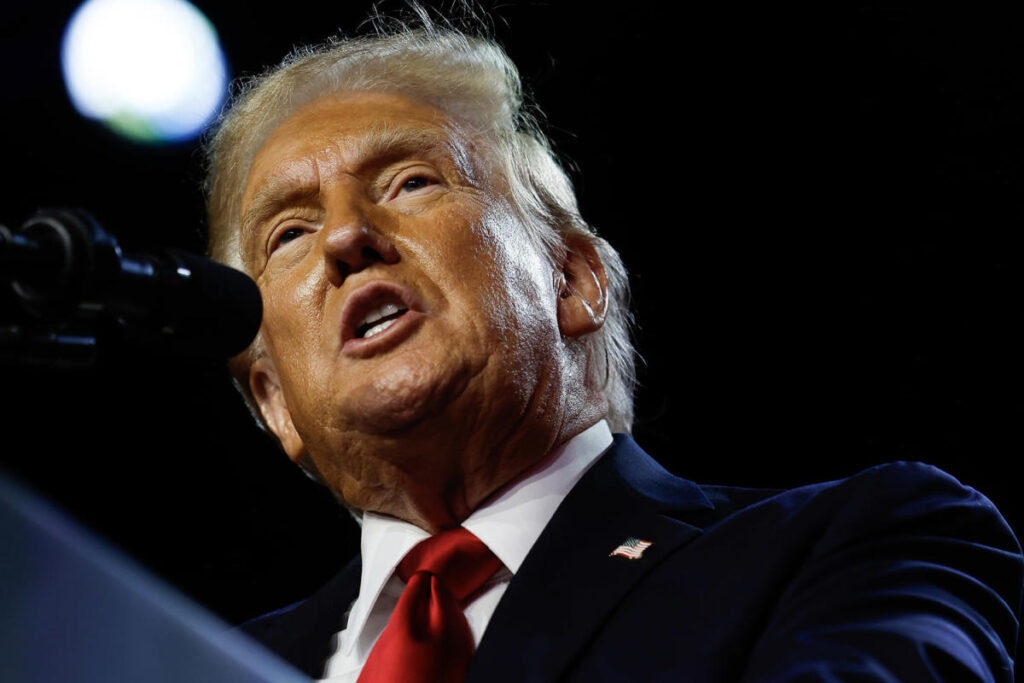In a recent edition of the evening newsletter From the Politics Desk, the NBC News Politics team provided crucial insights into the ongoing government shutdown battle, highlighting the role of President-elect Donald Trump in creating political upheaval before even taking office. Senior political reporter Jonathan Allen emphasized that Trump’s influence is manifesting as chaos in Washington, with serious implications for the legislative landscape. The article outlines House Republicans’ attempts to avert a government shutdown set to occur at the beginning of Saturday, illustrating the complexities and tensions within the party as they navigate the funding process.
On Thursday, House Republicans announced a new spending bill backed by Trump, aiming to prevent the looming shutdown. This bill was crafted under the guidance of House Speaker Mike Johnson and includes necessary provisions such as funding to sustain the government until March 14, a debt limit extension until January 30, 2027, and allocation for disaster relief related to recent hurricanes. However, the bill notably lacks certain elements that had previously drawn ire from Trump and his conservative allies, which were essential to the original bipartisan agreement that had been scuttled. The reception from Democrats has been skeptical, with House Minority Leader Hakeem Jeffries dismissing the proposal as “laughable,” indicating a challenging path forward in the legislative process.
The broader implications of Trump’s involvement are explored in-depth by Jonathan Allen, who notes that, even before assuming office, Trump is asserting his influence over congressional dynamics. His contradictory actions—first prompting Republicans to reject a previous bipartisan funding agreement, then endorsing a revised bill—underscore his unpredictable nature. Allen argues that Trump has already begun to reshape the political landscape in ways not seen during his first term. By prioritizing his agenda over party unity, Trump is igniting a sense of disarray that could complicate the already precarious negotiations necessary to keep the government funded and functioning.
As the deadline for avoiding a shutdown looms, the political atmosphere is charged not just with uncertainty, but also with the realization that Trump’s brand of chaos could become a hallmark of the upcoming administration. The initial resistance to the temporary funding bill from MAGA-aligned conservatives illustrates the ongoing fracture within the Republican ranks, where loyalty to Trump is often tested against party cohesion. This factionalism raises questions about the Republican Party’s strategy as it seeks to navigate governance in the wake of Trump’s unpredictable leadership style.
Amidst this tumult, other important political narratives are unfolding. For instance, in Pennsylvania, GOP candidate Dave McCormick has made headlines for being the only Republican to defeat a Democrat in a battleground state this election cycle, suggesting potential recalibrations in electoral strategy for the future. Additionally, the legal landscape around Trump continues to be tumultuous as he faces various legal challenges that may further complicate his administration’s goals and strategies. These concurrent developments reflect not only the challenges awaiting Trump as he prepares to enter the White House but also provide insight into the broader political dynamics shaping the GOP.
As Washington braces for the implications of a second Trump term, there is a growing anxiety among various stakeholders, including legal advocates, voters, and party officials, about what these developments signify for governance and democracy. The establishment of networks to defend potential targets of the administration, amid speculation over Trump’s plans to impose systemic changes, further signals an era of heightened vigilance and preparation among pro-democracy advocates. As the clock ticks down to the potential shutdown, and with Trump in a position of significant influence, all eyes remain fixed on how these events will unfold in the coming days and weeks.

